23 start with W start with W
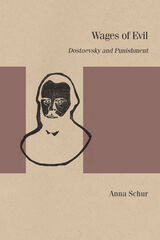
As Dostoevsky attempts to balance the various ethical and cultural imperatives, he displays ambivalence both about punishment and about mercy. This ambivalence, Schur argues, is further complicated by what Dostoevsky sees as the unfathomable quality of the self, which hinders every attempt to match crimes with punishments. The one certainty he holds is that a proper response to wrongdoing must include a concern for the wrongdoer’s moral improvement.


In Walls, Oles shows how our minds and our politics are shaped by–and shape–our divisions in the landscape. He traces the rich array of practices and meanings connected to the making and marking of boundaries across history and prehistory, and he describes how these practices have declined in recent centuries. The consequence, he argues, is all around us in the contemporary landscape, riven by walls shoddy in material and mean in spirit. Yet even today, Oles demonstrates, every wall remains potentially an opening, a stage, that critical place in the landscape where people present themselves and define their obligations to one another. In an evocative epilogue, Oles brings to life a society of productive, intentional, and ethical enclosure—one that will leave readers more hopeful about the divided landscapes of the future.
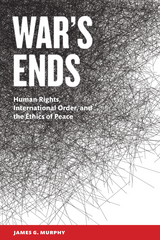
Before military action, and even before mobilization, the decision on whether to go to war is debated by politicians, pundits, and the public. As they address the right or wrong of such action, it is also a time when, in the language of the just war tradition, the wise would deeply investigate their true claim to jus ad bellum (“the right of war”). Wars have negative consequences, not the least impinging on human life, and offer infrequent and uncertain benefits, yet war is part of the human condition.
James G. Murphy’s insightful analysis of the jus ad bellum criteria—competent authority, just cause, right intention, probability of success, last resort, and proportionality—is grounded in a variety of contemporary examples from World War I through Vietnam, the "soccer war" between Honduras and El Salvador, Afghanistan, and the Middle East conflict. Murphy argues persuasively that understanding jus ad bellum requires a primary focus on the international common good and the good of peace. Only secondarily should the argument about going to war hinge on the right of self-defense; in fact, pursuing the common good requires political action, given that peace is not simply the absence of violence. He moves on to demonstrate the interconnectedness of the jus ad bellum criteria, contending that some criteria depend logically on others—and that competent authority, not just cause, is ultimately the most significant criterion in an analysis of going to war. This timely study will be of special interest to scholars and students in ethics, war and peace, and international affairs.
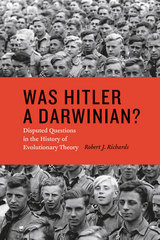

In a deeply unequal world, our economic status shapes our pursuit of virtue whether we have enough resources to live comfortably or struggle to survive
Our understanding of inequality as a moral problem is incomplete. It is not enough to say that inequality is caused by moral failing. We must also see that influence runs in both directions. Inequality harms people’s moral development.
In Wealth, Virtue, and Moral Luck, Kate Ward addresses the issue of inequality from the perspective of Christian virtue ethics, arguing that moral luck—our individual life circumstances—affects our ability to pursue virtue. Economic status functions as moral luck and impedes the ability of both the wealthy and the poor to pursue virtues such as prudence, justice, and temperance, and extreme inequality exacerbates the impact of wealth and poverty on virtue.
With these realities in mind, Ward shows how Christians and Christian communities should respond to the challenges inequality poses to virtue. Through working to change the structures that perpetuate extreme inequality—and through spiritual practices, including contentment, conversion, encountering others, and reminding ourselves of our ultimate dependence on God—Ward believes that we can create a world where all people can pursue and achieve virtue.
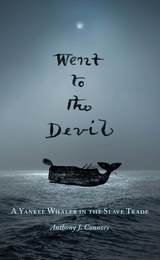
In this riveting biography, Anthony J. Connors explores this question by detailing not only the troubled, adventurous life of this man but also the turbulent times in which he lived. Set in an era of social and political fragmentation and impending civil war, when changes in maritime law and the economics of whaling emboldened slaving agents to target captains and their vessels for the illicit trade, Davoll's story reveals the deadly combination of greed and racial antipathy that encouraged otherwise principled Americans to participate in the African slave trade.
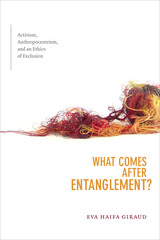
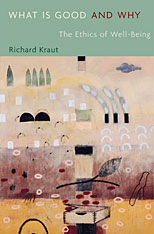
What is good? How can we know, and how important is it? In this book Richard Kraut, one of our most respected analytical philosophers, reorients these questions around the notion of what causes human beings to flourish--that is, what is good for us. Observing that we can sensibly talk about what is good for plants and animals no less than what is good for people, Kraut advocates a general principle that applies to the entire world of living things: what is good for complex organisms consists in the maturation and exercise of their natural powers.
Drawing on the insights of ancient Greek philosophy, Kraut develops this thought into a good-centered moral philosophy, an "ethics of well-being" that requires all of our efforts to do some good. Even what is good of a kind--good poems no less than good people--must be good for someone. Pleasure plays a key role in this idea of flourishing life, but Kraut opposes the current philosophical orthodoxy of well-being, which views a person's welfare as a construct of rational desires or plans, actual or ideal.
The practical upshot of Kraut's theory is that many common human pursuits--for riches, fame, domination--are in themselves worthless, while some of the familiar virtues--justice, honesty, and autonomy--are good for every human being.
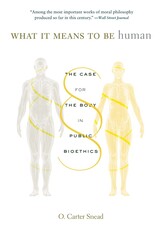
A Wall Street Journal Top Ten Book of the Year
A First Things Books for Christmas Selection
Winner of the Expanded Reason Award
“This important work of moral philosophy argues that we are, first and foremost, embodied beings, and that public policy must recognize the limits and gifts that this entails.”
—Wall Street Journal
The natural limits of the human body make us vulnerable and dependent on others. Yet law and policy concerning biomedical research and the practice of medicine frequently disregard these stubborn facts. What It Means to Be Human makes the case for a new paradigm, one that better reflects the gifts and challenges of being human.
O. Carter Snead proposes a framework for public bioethics rooted in a vision of human identity and flourishing that supports those who are profoundly vulnerable and dependent—children, the disabled, and the elderly. He addresses three complex public matters: abortion, assisted reproductive technology, and end-of-life decisions. Avoiding typical dichotomies of conservative-liberal and secular-religious, Snead recasts debates within his framework of embodiment and dependence. He concludes that if the law is built on premises that reflect our lived experience, it will provide support for the vulnerable.
“This remarkable and insightful account of contemporary public bioethics and its individualist assumptions is indispensable reading for anyone with bioethical concerns.”
—Alasdair MacIntyre, author of After Virtue
“A brilliantly insightful book about how American law has enshrined individual autonomy as the highest moral good…Highly thought-provoking.”
—Francis Fukuyama, author of Identity

A provocative call to rethink America's values in health care.

Regardless of the fate of national health care reform, public policy makers will have to make difficult and tragic choices about which health services are more or less important. This volume, the first comprehensive examination of setting mental health services priorities, systematically explores the history, ethics, and politics of setting priorities for public mental health services. Because mental health services have traditionally been given lower priority and less generous benefits than general health services, they form a striking case study for priority setting.
Written by mental health care practitioners and scholars, What Price Mental Health? explores the social factors that most influence attempts to set priorities; offers case studies at the state level; illustrates priorities at the federal level and in the private sector; and identifies the ethical criteria that must be applied in any attempt to set priorities.
This volume is conceptionally rich for those familiar with mental health care research, but written in a style understandable to the general reader. Policy makers will find the book useful in the on-going debates about mental health care. Psychologists, public health professionals, researchers and students of psychology, public policy and public health will find this study an absorbing and informative addition to the mental health field.
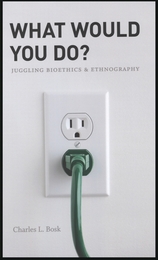
Renowned sociologist Charles L. Bosk has been observing medical care for thirty-five years. In What Would You Do? he brings his extensive experience to bear on these questions while reflecting on the ethical dilemmas that his own ethnographic research among surgeons and genetic counselors has provoked. Bosk considers whether the consent given to ethnographers by their subjects can ever be fully voluntary and informed. He questions whether promises of confidentiality and anonymity can or should be made. And he wonders if social scientists overestimate the benefits of their work while downplaying the risks.
Vital for practitioners of both the newly prominent field of bioethics and the long-established craft of ethnography, What Would You Do? will also engross anyone concerned with how our society addresses difficult health care issues.
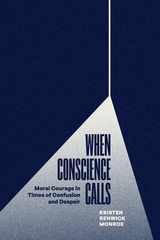
What is moral courage? Why is it important and what drives it? An argument for why we should care about moral courage and how it shapes the world around us.
War, totalitarianism, pandemics, and political repression are among the many challenges and crises that force us to consider what humane people can do when the world falls apart. When tolerance disappears, truth becomes rare, and civilized discourse is a distant ideal, why do certain individuals find the courage to speak out when most do not?
When Conscience Calls offers powerful portraits of ordinary people performing extraordinary acts—be it confronting presidents and racist mobs or simply caring for and protecting the vulnerable. Uniting these portraits is the idea that moral courage stems not from choice but from one’s identity. Ultimately, Kristen Renwick Monroe argues bravery derives from who we are, our core values, and our capacity to believe we must change the world. When Conscience Calls is a rich examination of why some citizens embrace anger, bitterness, and fearmongering while others seek common ground, fight against dogma, and stand up to hate.

Just what is a human being? Who counts? The answers to these questions are crucial when one is faced with the ethical issue of taking human life. In this affirmation of the intrinsic personal dignity and inviolability of every human individual, John Kavanaugh, S. J., denies that it can ever be moral to intentionally kill another.
Today in every corner of the world men and women are willing to kill others in the name of "realism" and under the guise of race, class, quality of life, sex, property, nationalism, security, or religion. We justify these killings by either excluding certain humans from our definition of personhood or by invoking a greater good or more pressing value.
Kavanaugh contends that neither alternative is acceptable. He formulates an ethics that opposes the intentional killing not only of medically "marginal" humans but also of depersonalized or criminalized enemies. Offering a philosophy of the person that embraces the undeveloped, the wounded, and the dying, he proposes ways to recover a personal ethical stance in a global society that increasingly devalues the individual.
Kavanaugh discusses the work of a range of philosophers, artists, and activists from Richard Rorty and Søren Kierkegaard to Albert Camus and Woody Allen, from Mother Teresa to Jack Kevorkian. His approach is in stark contrast to that of writer Peter Singer and others who believe that not all human life has intrinsic moral worth. It will challenge philosophers, students of ethics, and anyone concerned about the depersonalization of contemporary life.
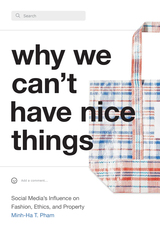
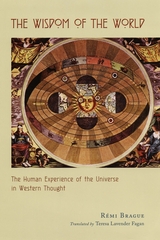
Before the Greeks, people thought human action was required to maintain the order of the universe and so conducted rituals and sacrifices to renew and restore it. But beginning with the Hellenic Age, the universe came to be seen as existing quite apart from human action and possessing, therefore, a kind of wisdom that humanity did not. Wearing his remarkable erudition lightly, Brague traces the many ways this universal wisdom has been interpreted over the centuries, from the time of ancient Egypt to the modern era. Socratic and Muslim philosophers, Christian theologians and Jewish Kabbalists all believed that questions about the workings of the world and the meaning of life were closely intertwined and that an understanding of cosmology was crucial to making sense of human ethics. Exploring the fate of this concept in the modern day, Brague shows how modernity stripped the universe of its sacred and philosophical wisdom, transforming it into an ethically indifferent entity that no longer serves as a model for human morality.
Encyclopedic and yet intimate, The Wisdom of the World offers the best sort of history: broad, learned, and completely compelling. Brague opens a window onto systems of thought radically different from our own.
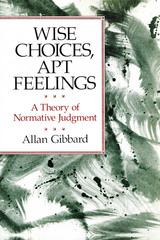
This book examines some of the deepest questions in philosophy: What is involved in judging a belief, action, or feeling to be rational? What place does morality have in the kind of life it makes most sense to lead? How are we to understand claims to objectivity in moral judgments and in judgments of rationality? When we find ourselves in fundamental disagreement with whole communities, how can we understand our disagreement and cope with it?
To shed light on such issues, Allan Gibbard develops what he calls a “norm-expressivistic analysis” of rationality. He refines this analysis by drawing on evolutionary theory and experimental psychology, as well as on more traditional moral and political philosophy. What emerges is an interpretation of human normative life, with its quandaries and disputes over what is rational and irrational, morally right and morally wrong. Judgments of what it makes sense to do, to think, and to feel, Gibbard argues, are central to shaping the way we live our lives.
Gibbard does not hesitate to take up a wide variety of possible difficulties for his analysis. This sensitivity to the true complexity of the subject matter gives his treatment a special richness and depth. The fundamental importance of the issues he addresses and the freshness and suggestiveness of the account he puts forward, along with his illuminating treatment of aspects of sociobiology theory, will ensure this book a warm reception from philosophers, social scientists, and others with a serious interest in the nature of human thought and action.
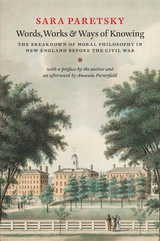
What’s less well-known is that before Paretsky began her writing career, she earned a PhD in history from the University of Chicago with a dissertation on moral philosophy and religion in New England in the early and mid-nineteenth century. Now, for the first time, fans of Paretsky can read that earliest work, Words, Works, and Ways of Knowing.
Paretsky here analyzes attempts by theologians at Andover Seminary, near Boston, to square and secure Calvinist religious beliefs with emerging knowledge from history and the sciences. She carefully shows how the open-minded scholasticism of these theologians paradoxically led to the weakening of their intellectual credibility as conventional religious belief structures became discredited, and how this failure then incited reactionary forces within Calvinism. That conflict between science and religion in the American past is of interest on its face, but it also sheds light on contemporary intellectual battles.
Rounding out the book, leading religious scholar Amanda Porterfield provides an afterword discussing where Paretsky’s work fits into the contemporary study of religion. And in a sobering—sometimes shocking—preface, Paretsky paints a picture of what it was like to be a female graduate student at the University of Chicago in the 1970s. A treat for Paretsky’s many fans, this book offers a glimpse of the development of the mind behind the mysteries.

On November 10, 2017, Pope Francis became the first pontiff in the nuclear era to take a complete stand against nuclear weapons, even as a form of deterrence. At a Vatican conference of leaders in the field of disarmament, he made it clear that the possession of the bomb itself was immoral. A World Free from Nuclear Weapons presents the pope’s address and original testimony from Nobel Peace Prize laureates, religious leaders, diplomats, and civil society activists.
These luminaries, which include the pope and a Hiroshima survivor, make the moral case against possessing, manufacturing, and deploying nuclear arms. Drew Christiansen, a member of the Holy See delegation to the 2017 United Nations conference that negotiated the Treaty to Prohibit Nuclear Weapons, helps readers to understand this conference in its historical context.
A World Free from Nuclear Weapons is a critical companion for scholars of modern Catholicism, moral theology, and peace studies, as well as policymakers working on effective disarmament. It shows how the Church’s revised position presents an opportunity for global leaders to connect disarmament to larger movements for peace, pointing toward future action.

For much of the developed world, health care for a surging elderly population looms as one of the most daunting problems of the coming decade. In this book, contributors from diverse disciplinary backgrounds and countries discuss resource allocation for the elderly and debate plans for the years ahead. Essays focus on five general issues: the meaning of old age, the goals of medicine and health care for the elderly, the balance between the needs of the young and old, the pressures of other social priorities, and the role of families, especially the burden on women, in long-term care.
In consideration of the difficult moral and practical issues involved, the editors conclude the volume with a special report containing policy recommendations from representatives of eight countries (the United States, Belgium, the Czech Republic, Germany, Hungary, the Netherlands, Sweden, and the United Kingdom). This important volume will be of interest to policymakers and a broad spectrum of health care professionals, as well as to anyone interested in the fate of the elderly or in coming health care challenges.

"The sordid controversies of litigants," Benjamin Cardozo once said, are "the stuff from which great and shining truths will ultimately be shaped." As one of America's most influential judges, first on New York State's Court of Appeals and then on the United States Supreme Court, Cardozo (1870-1938) oversaw this transformation daily. How he arrived at his rulings, with their far-reaching consequences, becomes clear in this book, the first to explore the connections between Benjamin Cardozo's life and his jurisprudence.
An intensely private man whose friends destroyed much of his correspondence, Cardozo has long eluded scrutiny. But through extraordinary effort Richard Polenberg has uncovered letters, briefs, transcripts, and biographical details to give us a complex living picture of this man whose judicial opinions continue to affect us. Polenberg describes the shaping experiences of Cardozo's youth, among them the death of his mother when he was nine years old; religious training in the Spanish-Portuguese Synagogue; two years of private tutoring by Horatio Alger, Jr.; and his reaction to the scandal that prompted his father to resign from the New York Supreme Court. Then, in light of certain cases that were brought before the Court of Appeals, we see how Cardozo's rulings reflected a system of beliefs rooted in these early experiences; how, despite his famous detachment, Cardozo read evidence and precedents selectively and based his decisions regarding issues from rape and divorce to the insanity plea on his own views about morality, scholarship, and sexuality. Here too is the truth behind Cardozo's renowned liberalism, explored through his rulings on New Deal measures such as the Social Security Act and his more conservative decisions in cases involving conscientious objectors and the rights of criminal defendants.
The Benjamin Cardozo who emerges from these pages, a complicated and intriguing figure, points to a new understanding of the shaping of American law.
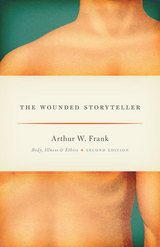
Drawing on the work of authors such as Oliver Sacks, Anatole Broyard, Norman Cousins, and Audre Lorde, as well as from people he met during the years he spent among different illness groups, Frank recounts a stirring collection of illness stories, ranging from the well-known—Gilda Radner's battle with ovarian cancer—to the private testimonials of people with cancer, chronic fatigue syndrome, and disabilities. Their stories are more than accounts of personal suffering: they abound with moral choices and point to a social ethic.
In this new edition Frank adds a preface describing the personal and cultural times when the first edition was written. His new afterword extends the book’s argument significantly, writing about storytelling and experience, other modes of illness narration, and a version of hope that is both realistic and aspirational. Reflecting on both his own life during the creation of the first edition and the conclusions of the book itself, Frank reminds us of the power of storytelling as way to understanding our own suffering.
READERS
Browse our collection.
PUBLISHERS
See BiblioVault's publisher services.
STUDENT SERVICES
Files for college accessibility offices.
UChicago Accessibility Resources
home | accessibility | search | about | contact us
BiblioVault ® 2001 - 2024
The University of Chicago Press









